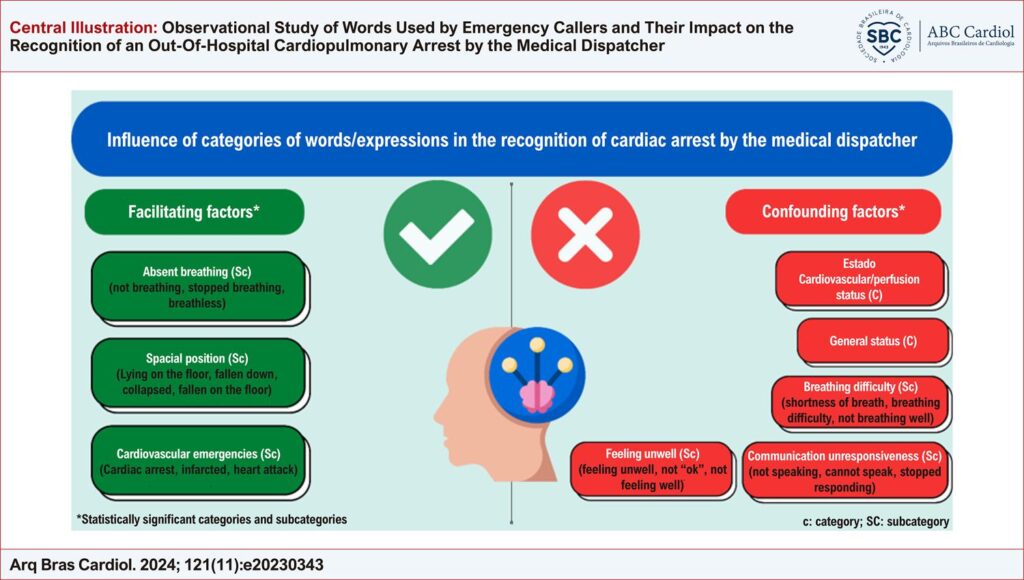Arq. Bras. Cardiol. 2024; 121(11): e20230343
Observational Study of Words Used by Emergency Callers and Their Impact on the Recognition of an Out-Of-Hospital Cardiopulmonary Arrest by the Medical Dispatcher
This Original Article is referred by the Short Editorial "Recognition by the Regulatory Physician of Expressions Used by Lay People when Asking for Help in Supposed Cardiorespiratory Arrest".
Abstract
Background
Survival of victims of out-of-hospital cardiopulmonary arrest (CA) is related to the time and quality of cardiopulmonary resuscitation (CPR).1 Considering that most CAs occur outside the hospital setting, it is evident that the early recognition of this condition is the cornerstone of the chain of survival. Current literature on the theme is still scarce.
Objectives
To analyze categories and subcategories of words and expressions spontaneously used by laypeople during emergency calls for CA and their relationship with the recognition of this event by the medical dispatcher.
Methods
This was a cross-sectional study, with analysis of calls made by laypeople due to suspected CA to emergency medical services in Brazil. The expressions used were classified into six categories and 31 subcategories. Univariate and multivariate models were used to assess the strength of the association of categories and subcategories of words and expressions with the presumption of CA. The level of significance was set at 5%. Results: A total of 284 calls were included, and after applying the inclusion criteria, 101 calls were analyzed. The categories “cardiovascular/perfusion status” (p=0.019) and “general status” (p=0.011) were identified as confounding factors for the recognition of CA, and the subcategories “breathing difficulty” (p=0.023), “verbal unresponsiveness” (p=0.034), “facial coloration” (p=0.068) and “feeling unwell” (p=0.013) were also considered as confounders. On the other hand, the subcategories “not breathing” (p=0.010); “spatial position” (p=0.016), and “cardiovascular emergencies” (p=0.045) were identified as facilitating factors for the recognition of CA.
Conclusion
Categories and subcategories of expressions used by emergency callers for CA can influence the timely recognition of this condition by the medical dispatcher.
495

